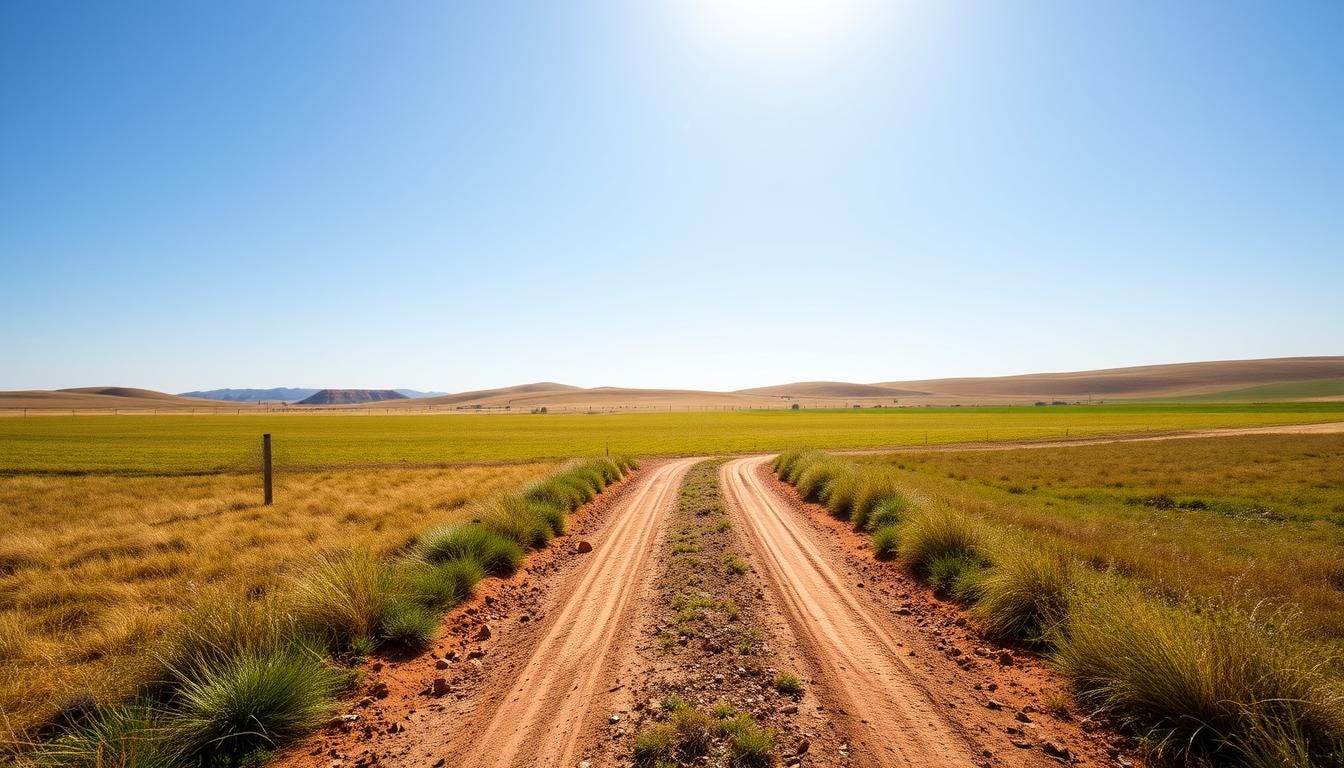Can You Buy Land Without a Down Payment?
For many, owning land is a significant goal, whether it's for building a home, investing, or other purposes. However, the requirement for a down payment often stands in the way.
Is it possible to acquire land without a substantial initial investment? The answer is crucial for those looking to make their land-owning dreams a reality. Exploring options for buying land with minimal upfront costs can open up new possibilities.
Key Takeaways
Understanding the options for buying land with little to no down payment.
The implications of purchasing land with minimal upfront investment.
Exploring government programs and incentives that support land buying.
Considering alternative financing options for land purchases.
The importance of evaluating the total cost of land ownership.
Understanding Land Purchases Without Down Payments
Buying land without a down payment is an attractive option for many, but it's crucial to understand the underlying financing mechanisms. Traditionally, land purchases have required significant down payments due to the high risk involved for lenders.
Traditional Land Financing vs. No Down Payment Options
Traditional land financing typically involves a substantial down payment, often ranging from 20% to 30% or more of the purchase price. This requirement is due to the inherent risks associated with land loans, such as the potential for default and the challenges of valuing raw land. In contrast, no down payment options are available through certain government-backed loan programs and alternative financing arrangements.
For instance, USDA Rural Development Loans and VA Loans offer favorable terms, including lower or no down payment requirements, to eligible borrowers. These programs are designed to promote land ownership among specific groups, such as veterans or rural residents.
Why Land Purchases Typically Require Larger Down Payments
Land purchases typically require larger down payments because they are considered riskier than other types of real estate transactions. Lenders view land loans as more speculative due to the lack of income-generating potential and the difficulties in assessing the land's value. As a result, lenders often demand a larger down payment to mitigate this risk.
Additionally, land loans usually have higher interest rates and shorter repayment terms compared to traditional mortgages, further complicating the financing process. Understanding these factors is crucial for buyers considering a land purchase with little to no down payment.
Can You Buy Land Without a Down Payment? Exploring the Possibilities
Buying land without a down payment is not impossible; in fact, it's a viable option for many through specific loan programs and financing arrangements. For prospective landowners, understanding these alternatives is crucial.
Several programs facilitate land purchases with minimal upfront costs. One such option is through government-backed loans designed for specific demographics or land uses.
USDA Rural Development Loans
The USDA Rural Development Loans program is tailored for buyers looking to purchase land in rural areas. These loans offer favorable terms, including no down payment requirements, making them an attractive option for those looking to buy rural land.
Eligibility is contingent upon the property's location and the buyer's income level, among other factors. This program is particularly beneficial for those seeking to own land in designated rural areas.
VA Loans for Eligible Veterans
VA Loans are another viable option for buying land without a down payment, specifically for eligible veterans. These loans are guaranteed by the Department of Veterans Affairs and offer several benefits, including lower interest rates and no down payment requirements.
Veterans can leverage these loans to purchase land for various purposes, including primary residences or investment properties, provided they meet the eligibility criteria.
Owner Financing Arrangements
Owner financing arrangements represent a flexible alternative for buyers who may not qualify for traditional loans or need more lenient terms. In this setup, the seller finances the purchase, allowing buyers to make payments directly to them.
This arrangement can benefit both parties, as it opens up land ownership to a broader range of buyers and provides the seller with a steady income stream.
In conclusion, buying land without a down payment is achievable through various loan programs and financing arrangements. Prospective buyers should explore these options to determine the best fit for their circumstances.
Requirements and Qualifications for No Down Payment Land Purchases
The possibility of purchasing land without a down payment hinges on meeting stringent financial requirements. Buyers must demonstrate financial stability and creditworthiness to qualify for no down payment land purchases.
Credit Score and Financial History Requirements
Lenders typically require a good credit score to approve no down payment land loans. A credit score of 700 or higher is often preferred, though some programs may consider lower scores with additional compensating factors. The financial history, including past loan repayments and bankruptcies, is also scrutinized to assess the buyer's creditworthiness.
Income Verification and Debt-to-Income Ratio
Buyers must provide income verification documents, such as pay stubs and tax returns, to demonstrate their ability to repay the loan. Lenders also calculate the debt-to-income ratio to ensure that the buyer's monthly loan payments do not exceed a certain percentage of their monthly income, typically 36%.
Property Type and Location Restrictions
No down payment land purchase programs often come with restrictions on the type and location of the property. For instance, USDA loans are limited to rural areas, while VA loans can be used for properties in various locations, provided they meet specific eligibility criteria. Understanding these restrictions is crucial for a successful land purchase.
Pros and Cons of Buying Land With No Money Down
The prospect of buying land with zero down payment is enticing, but it's crucial to weigh the associated benefits and risks. This approach to land acquisition can offer significant advantages, but it also comes with potential drawbacks that need to be considered.
Advantages of No Down Payment Land Purchases
One of the primary benefits of buying land with no money down is the conservation of capital. By not making a down payment, investors can retain more of their cash reserves, which can then be used for other investments or operational expenses. This strategy can be particularly appealing in a competitive market where liquidity is crucial.
Potential for higher returns on investment due to lower initial outlay.
Ability to diversify investment portfolios without significant upfront costs.
Opportunity to invest in land that may appreciate in value over time.
As noted by a real estate expert, "Investing in land without a down payment can be a savvy move, allowing investors to leverage their resources more effectively."
"The key to successful land investment is understanding the local market and being able to predict future trends."
John Doe, Real Estate Investor
Potential Drawbacks and Higher Long-Term Costs
While buying land with no money down has its advantages, there are also potential drawbacks to consider. One of the main concerns is the higher long-term costs associated with not making a down payment. Without an initial investment, the overall cost of the loan may be higher, leading to increased expenses over the life of the loan.
ConsiderationsWith Down PaymentWithout Down PaymentInitial InvestmentHigher upfront costLower upfront costLong-term CostsLower overall costHigher overall costMonthly PaymentsLower monthly paymentsHigher monthly payments
It's essential for potential land buyers to carefully evaluate these factors and consider their financial situation before making a decision.
Alternative Strategies for Minimal Upfront Investment
Several strategies can help minimize the initial investment required for purchasing land. These alternatives to traditional financing methods can provide flexibility and make land ownership more accessible.
Seller Financing with Delayed Down Payments
Seller financing allows buyers to negotiate directly with the seller to finance the land purchase. One beneficial arrangement is a delayed down payment, where the initial payment is postponed, easing the immediate financial burden on the buyer. This method can be particularly advantageous for buyers who need time to secure funds or who are looking to conserve their cash reserves.
Land Contracts and Rent-to-Own Options
Land contracts and rent-to-own options offer alternative paths to land ownership. In a land contract, the buyer makes payments directly to the seller over a specified period, gaining ownership once the full payment is made. Rent-to-own arrangements allow buyers to rent the land with the option to purchase it in the future, often with a portion of the rent payments applying to the down payment. These options can be beneficial for those who may not qualify for traditional financing.
Using Home Equity or Retirement Funds
For those who already own a home, using home equity to finance a land purchase is a viable option. Homeowners can tap into their home's equity through a home equity loan or line of credit to fund the land purchase. Alternatively, certain retirement accounts allow for penalty-free withdrawals or loans that can be used for land purchases, providing another potential source of funding.
By exploring these alternative strategies, prospective land buyers can find options that fit their financial situation, making it possible to purchase land with minimal upfront investment. Whether through seller financing, land contracts, or leveraging existing assets, buyers can achieve their goal of land ownership with careful planning and negotiation.
Buying Land Without a Down Payment: A Feasible Reality
Buying land without a down payment is a feasible reality for those who understand the available financing options and are willing to navigate the associated challenges. Programs like USDA Rural Development Loans and VA Loans offer opportunities for eligible buyers to secure land with little to no upfront costs.
Land buying without upfront payment requires careful consideration of credit score, financial history, and debt-to-income ratio. Understanding these requirements can help prospective buyers prepare and increase their chances of approval for a no down payment land purchase.
Purchasing land with no money down can be a strategic investment, but it's crucial to weigh the pros and cons, including potential drawbacks and higher long-term costs. Alternative strategies, such as seller financing and land contracts, can also provide viable pathways to land ownership.
Ultimately, buying land with zero down payment demands a thorough understanding of the process and its implications. By exploring the various options and being informed, buyers can make smart decisions about their land-buying endeavors and achieve their goals.




